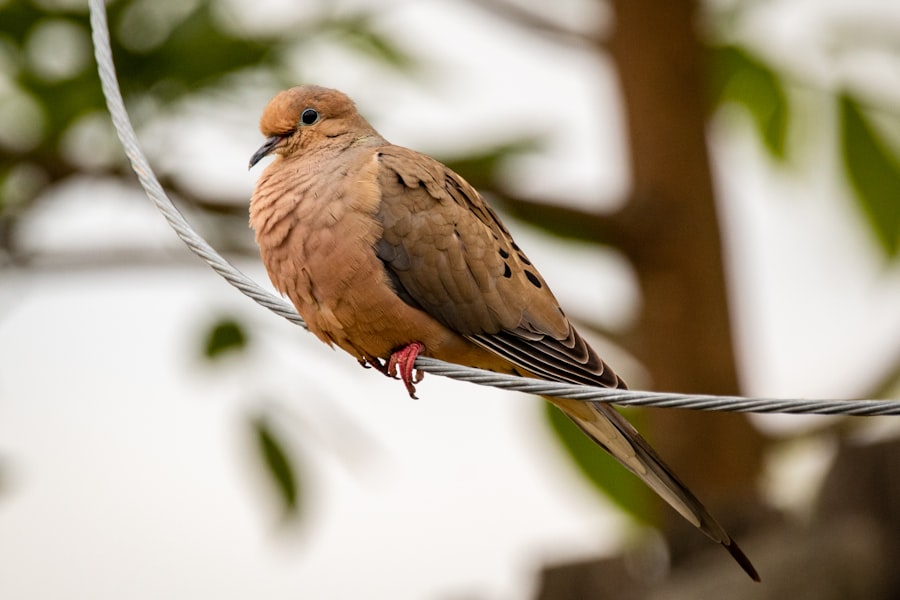Keeping chickens as pets has gained popularity in recent years, offering individuals a sustainable way to connect with nature and produce their own food. Chickens provide fresh eggs and serve as companionable pets, offering entertainment for families. They are adaptable to various environments, from rural to urban settings, and require relatively low maintenance, making them suitable for many households.
Chickens are known for their distinct personalities and social behavior, providing engaging interactions for their owners. There are numerous chicken breeds available, each with unique characteristics. Examples include the friendly Orpington and the small, elegant Silkie, allowing potential owners to select a breed that aligns with their preferences and lifestyle.
This article will discuss various aspects of keeping chickens as pets, including:
1. Selecting appropriate breeds
2. Housing and coop requirements
3.
Feeding and nutrition
4. Health and wellness
5. Daily care and maintenance
6.
Benefits and considerations of chicken ownership
By exploring these topics, readers can gain a comprehensive understanding of what is involved in keeping chickens as pets.
Table of Contents
- 1 Choosing the Right Breed of Chicken
- 2 Housing and Coop Requirements for Chickens
- 3 Feeding and Nutrition for Pet Chickens
- 4 Health and Wellness for Pet Chickens
- 5 Daily Care and Maintenance of Chickens
- 6 Benefits and Considerations of Keeping Chickens as Pets
- 7 FAQs
- 7.1 What are some benefits of keeping chickens as pets?
- 7.2 What are some important considerations before keeping chickens as pets?
- 7.3 What are some basic needs for keeping chickens as pets?
- 7.4 What are some common health issues for chickens?
- 7.5 What are some popular chicken breeds for keeping as pets?
Key Takeaways
- Keeping chickens as pets can be a rewarding and enjoyable experience for many people.
- When choosing a breed of chicken, consider factors such as temperament, egg-laying capabilities, and climate adaptability.
- Providing a safe and comfortable coop is essential for the well-being of pet chickens.
- A balanced diet with access to fresh water is crucial for the health and nutrition of pet chickens.
- Regular health check-ups, vaccinations, and parasite control are important for maintaining the wellness of pet chickens.
Choosing the Right Breed of Chicken
Purpose of Keeping Chickens
First and foremost, you’ll want to think about the purpose of keeping chickens as pets. Are you primarily interested in having a steady supply of fresh eggs? Or are you looking for chickens that are friendly and sociable? Different breeds have been developed for specific purposes, so it’s important to choose a breed that aligns with your goals.
Breed Characteristics
For example, if you’re looking for a prolific egg layer, breeds like the Rhode Island Red or Leghorn may be ideal. On the other hand, if you’re more interested in chickens with friendly dispositions, breeds like the Buff Orpington or Australorp may be better suited for your needs.
Environmental and Spatial Considerations
Another important consideration when choosing a breed of chicken is the climate and environment in which you live. Some breeds are better suited for cold climates, while others thrive in warmer temperatures. Additionally, some breeds are more adaptable to confinement, making them suitable for urban settings with limited space. It’s also important to consider the size of the chicken breed, as larger breeds may require more space and resources than smaller breeds.
Ultimately, the right breed of chicken for you will depend on your specific needs, preferences, and living situation.
Housing and Coop Requirements for Chickens

Proper housing and coop requirements are essential for keeping chickens as pets. Chickens need a safe and secure environment to roost, lay eggs, and seek shelter from predators and the elements. When it comes to housing, there are several key factors to consider, including space, ventilation, insulation, and protection from predators.
The size of the coop will depend on the number of chickens you plan to keep, but as a general rule of thumb, each chicken should have at least 2-3 square feet of space inside the coop and 8-10 square feet in an outdoor run. Ventilation is crucial for maintaining good air quality inside the coop and preventing moisture buildup, which can lead to respiratory issues in chickens. Adequate insulation is also important, especially in colder climates, to keep chickens warm during the winter months.
Additionally, the coop should be predator-proof, with secure latches on doors and windows, as well as wire mesh fencing to prevent access from predators like raccoons, foxes, and birds of prey. In addition to the coop, chickens also need a secure outdoor run where they can scratch, peck, and forage for insects and plants. The run should be covered with wire mesh to protect chickens from aerial predators and should provide ample space for exercise and natural behaviors.
Providing a safe and comfortable housing environment is essential for the health and well-being of pet chickens.
Feeding and Nutrition for Pet Chickens
Feeding and nutrition are crucial aspects of caring for pet chickens. A well-balanced diet is essential for maintaining the health and productivity of chickens, whether they are kept for egg production or simply as pets. Chickens are omnivores and require a diet that includes a mix of grains, seeds, fruits, vegetables, and protein sources.
A commercial layer feed is an excellent base diet for laying hens, as it provides essential nutrients like calcium and protein necessary for egg production. In addition to commercial feed, chickens can also benefit from supplemental treats like mealworms, fruits, vegetables, and kitchen scraps. It’s important to provide a varied diet to ensure that chickens receive all the essential nutrients they need to stay healthy.
Fresh water should also be available at all times, as dehydration can lead to health issues in chickens. It’s important to monitor the body condition of chickens and adjust their diet accordingly. Overweight or underweight chickens may require adjustments to their feeding regimen to maintain a healthy body condition.
Additionally, providing access to grit and oyster shell is important for chickens to aid in digestion and calcium absorption for strong eggshells. By providing a well-balanced diet and monitoring their nutritional needs, you can ensure that your pet chickens remain healthy and happy.
Health and Wellness for Pet Chickens
Maintaining the health and wellness of pet chickens is essential for their overall well-being. Regular health checks are important to monitor for any signs of illness or injury. Common health issues in chickens include respiratory infections, parasites, egg binding in hens, and injuries from predators or other chickens.
It’s important to familiarize yourself with the signs of illness in chickens so that you can take prompt action if necessary. Preventative measures such as regular cleaning of the coop, providing access to clean water, and practicing good biosecurity can help reduce the risk of disease in chickens. Additionally, regular deworming and parasite control are important for maintaining the health of pet chickens.
It’s also important to provide regular access to dust baths for chickens to help control external parasites like mites and lice. In addition to physical health, mental stimulation is also important for the well-being of pet chickens. Chickens are intelligent animals that benefit from environmental enrichment such as perches, dust baths, and toys to peck at.
Providing opportunities for natural behaviors like scratching and foraging can help keep chickens mentally stimulated and prevent boredom-related issues. By staying proactive about the health and wellness of pet chickens, you can help ensure that they lead happy and healthy lives as part of your household.
Daily Care and Maintenance of Chickens

Daily Care Tasks
Daily care tasks are crucial for keeping pet chickens healthy and happy. These tasks include providing fresh water and food, collecting eggs, monitoring for signs of illness or injury, cleaning the coop, and maintaining a clean living environment for the chickens.
Regular Maintenance
In addition to daily care tasks, regular maintenance is also important for keeping pet chickens healthy and happy. This includes trimming nails and beaks as needed, checking for signs of mites or lice, and providing regular access to dust baths for natural grooming behaviors. Regularly inspecting chickens for any signs of injury or illness is also important for early intervention if necessary.
Chickens also benefit from regular social interaction with their human caregivers. Spending time with your pet chickens can help build trust and strengthen your bond with them. Chickens are social animals that enjoy human company and can be quite affectionate towards their caregivers when given the opportunity. By incorporating daily care tasks into your routine and staying proactive about maintenance and social interaction, you can ensure that your pet chickens receive the care they need to thrive as part of your household.
Benefits and Considerations of Keeping Chickens as Pets
Keeping chickens as pets offers a wide range of benefits for both individuals and families. Chickens provide a sustainable source of fresh eggs, which can be a valuable addition to a household’s food supply. In addition to eggs, chickens also offer pest control by eating insects like ticks, beetles, and grasshoppers that can be harmful to gardens or crops.
Chickens are also great companions that can provide entertainment and joy through their quirky behaviors and social interactions. They are known for their curious nature and can be quite entertaining to watch as they scratch at the ground or take dust baths. For families with children, keeping chickens as pets can also provide valuable lessons about responsibility, animal care, and where food comes from.
However, there are also considerations to keep in mind when it comes to keeping chickens as pets. Chickens require a commitment to daily care tasks such as feeding, cleaning, and monitoring their health. Additionally, they may not be suitable for households with limited outdoor space or strict zoning regulations that prohibit keeping poultry.
In conclusion, keeping chickens as pets can be a rewarding experience that offers numerous benefits for individuals and families alike. By choosing the right breed of chicken, providing proper housing and nutrition, maintaining their health and wellness, incorporating daily care tasks into your routine, and considering the benefits and considerations of keeping chickens as pets, you can create a fulfilling relationship with these charming animals as part of your household.
If you’re interested in keeping chickens as pets, you may also want to learn about raising guinea fowl. Check out this article on when guinea fowl lay eggs to expand your knowledge of poultry keeping. Understanding the different needs and behaviors of various types of birds can help you create a happy and healthy environment for your feathered friends.
FAQs
What are some benefits of keeping chickens as pets?
Keeping chickens as pets can provide a sustainable source of fresh eggs, natural pest control in the garden, and a source of fertilizer for plants. Additionally, chickens can be entertaining and provide companionship.
What are some important considerations before keeping chickens as pets?
Before keeping chickens as pets, it is important to check local regulations and zoning laws regarding owning chickens. Additionally, potential owners should consider the time, space, and resources needed to properly care for chickens.
What are some basic needs for keeping chickens as pets?
Chickens require a secure and spacious coop for shelter, access to fresh water and a balanced diet, and protection from predators. They also need space to roam and scratch, as well as access to sunlight and fresh air.
What are some common health issues for chickens?
Common health issues for chickens include parasites, respiratory infections, and egg-laying problems. It is important to regularly monitor the health of chickens and seek veterinary care when necessary.
What are some popular chicken breeds for keeping as pets?
Popular chicken breeds for keeping as pets include the Rhode Island Red, Plymouth Rock, and Orpington. These breeds are known for their friendly temperament, egg-laying abilities, and suitability for backyard environments.
Meet Walter, the feathered-friend fanatic of Florida! Nestled in the sunshine state, Walter struts through life with his feathered companions, clucking his way to happiness. With a coop that’s fancier than a five-star hotel, he’s the Don Juan of the chicken world. When he’s not teaching his hens to do the cha-cha, you’ll find him in a heated debate with his prized rooster, Sir Clucks-a-Lot. Walter’s poultry passion is no yolk; he’s the sunny-side-up guy you never knew you needed in your flock of friends!







